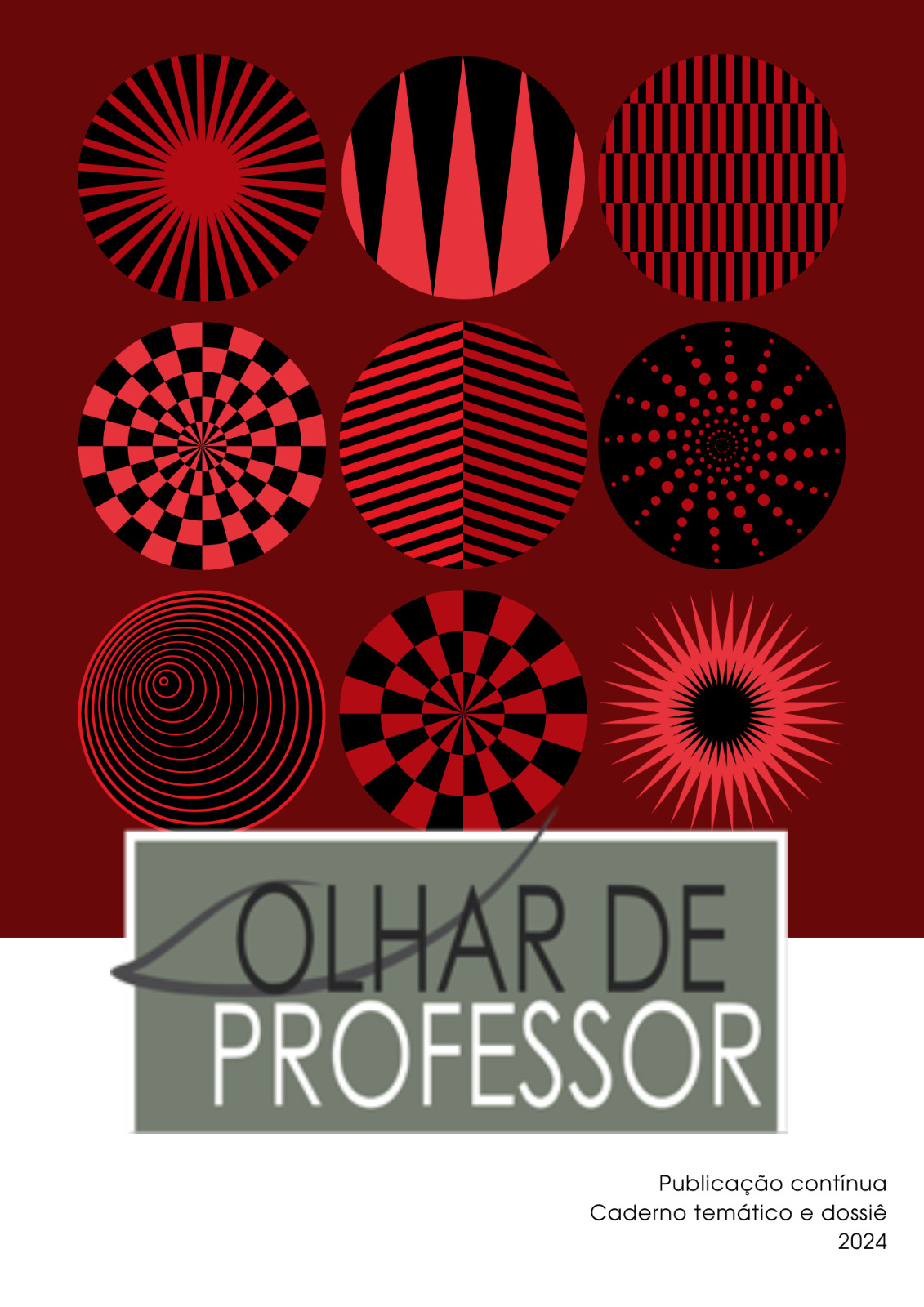Professional identity of Elementary School first grade teachers: narratives of trajectories
Main Article Content
Abstract
In this text, the focus was on the professional identity of pedagogue-teachers working in the first grades of Elementary School. The aim was to answer the following question: What do teachers narrate about their professional trajectory and the constitution of their pedagogical ideology? It was sought to investigate the aspects that interfere in the constitution of the pedagogue-teacher's identity, considering the narratives produced by five teachers. The empirical material consisted of interviews, in the narrative modality, with five pedagogue-teachers. The analysis, from a comprehensive-interpretative perspective, points out signs of the marks of the experiences lived as students in their way of conceiving teaching and student learning; unveils the influence of the affective relationships experienced in the choice of teaching; reveals the challenges of the early days of teaching and the ways of overcoming them, narrated by the teachers; shows how much this contributes to identity constitution. The teachers perceive themselves as being in a continuing process of education, assuming themselves to be unfinished subjects.
Downloads
Article Details

This work is licensed under a Creative Commons Attribution 4.0 International License.
Authors who publish in this journal agree with the following terms:
a) Authors keep the copyrights and concede the right of its first publication to the magazine. The work piece must be simultaneously licensed on the Creative Commons Attribution License which allows the paper sharing, and preserves both the author identity and the right of first publication to this magazine.
b) Authors are authorized to assume additional contracts separately, to not-exclusively distribution of the paper version published in this magazine (e.g.: publish in institutional repository or as a book chapter), with the author identity recognition and its first publication in this magazine.
c) Authors are permitted and stimulated to publish and distribute their papers online (e.g.: in institutional repository or on their personal webpage), considering it can generate productive alterations, as well as increase the impact and the quotations of the published paper.
d) This journal provides public access to all its content, as this allows a greater visibility and reach of published articles and reviews. For more information on this approach, visit the Public Knowledge Project, a project that developed this system to improve the academic and public quality of the research, distributing OJS as well as other software to support the publication system of public access to academic sources.
e) The names and e-mail addresses on this site will be used exclusively for the purposes of the journal and are not available for other purposes.

This work is licensed under a Creative Commons Attribution 4.0 International License.
References
DEWEY, J. Vida e Educação. Tradução: Anísio Teixeira. 6. ed. São Paulo: Melhoramentos, 1967.
DOMINICÉ, P. O processo de formação e alguns dos seus componentes relacionais. In: NÓVOA, A.; FINGER, M. (org.). O método (auto)biográfico e a formação. Natal: EDUFRN; São Paulo: Paulus, 2010. p. 81-95.
FLICK, U. Introdução à pesquisa qualitativa. Tradução: Joice Elias Costa. 3. ed. Porto Alegre: Artmed, 2009.
FORTES, F. A. M.; NACARATO, A. M. As tensões do início da carreira docente. Linhas Críticas, Brasília, v. 26, p. 1-17, 2020. DOI: https://doi.org/10.26512/lc.v26.2020.32069 DOI: https://doi.org/10.26512/lc.v26.2020.32069
FREIRE, P. Professora sim, tia não: cartas a quem ousa ensinar. São Paulo: Olho d’Água, 1994.
FREIRE, P. Pedagogia da autonomia: saberes necessários à prática educativa. 28. ed. São Paulo: Paz e Terra, 1996.
JOVCHELOVITCH, S.; BAUER, M. W. Entrevista narrativa. In: BAUER, M. W.; GASKELL, G. (org.). Pesquisa qualitativa com texto, imagem e som: um manual prático. 4. ed. Petrópolis: Vozes, 2005. p. 90-113.
LIBÂNEO, J. C. Democratização da escola pública: a pedagogia crítico social dos conteúdos. São Paulo: Loyola, 1985.
LUIZA NETO, I.; SANTOS, H. B. dos. Investigação das memórias escolares de estudantes universitários. Psicologia Escolar e Educacional, São Paulo, v. 21, n. 3, p. 561-571, set./dez. 2017. DOI: https://doi.org/10.1590/2175-353920170213111110 DOI: https://doi.org/10.1590/2175-353920170213111110
MARCELO, C. A identidade docente: constantes e desafios. Revista Brasileira de Pesquisa sobre Formação Docente, Belo Horizonte, v. 1, n. 1, p. 109-131, ago./dez. 2009. Disponível em http://formacaodocente.autenticaeditora.com.br. Acesso em: 12 jun. 2021.
MOTTA, P. C.; ROMANI, P. F. A educação socioemocional e suas implicações no contexto escolar: uma revisão de literatura. Psicologia da Educação, São Paulo, n. 49, p. 49-56, 2019. DOI: http://dx.doi.org/10.5935/2175-3520.20190018 DOI: https://doi.org/10.5935/2175-3520.20190018
SOUZA, E. C. de. Diálogos cruzados sobre pesquisa (auto)biográfica: análise compreensiva-interpretativa e política de sentido. Educação, Santa Maria, v. 39, n. 1, p. 39-50, jan./abr. 2014. DOI: http://dx.doi.org/10.5902/1984644411344 DOI: https://doi.org/10.5902/1984644411344
THOMPSON, A. A relação entre concepções de matemática e de ensino de matemática de professores na prática pedagógica. Zetetiké, Campinas, v. 5, n. 8, p. 11-44, jul./dez. 1997. DOI: https://doi.org/10.20396/zet.v5i8.8646846





